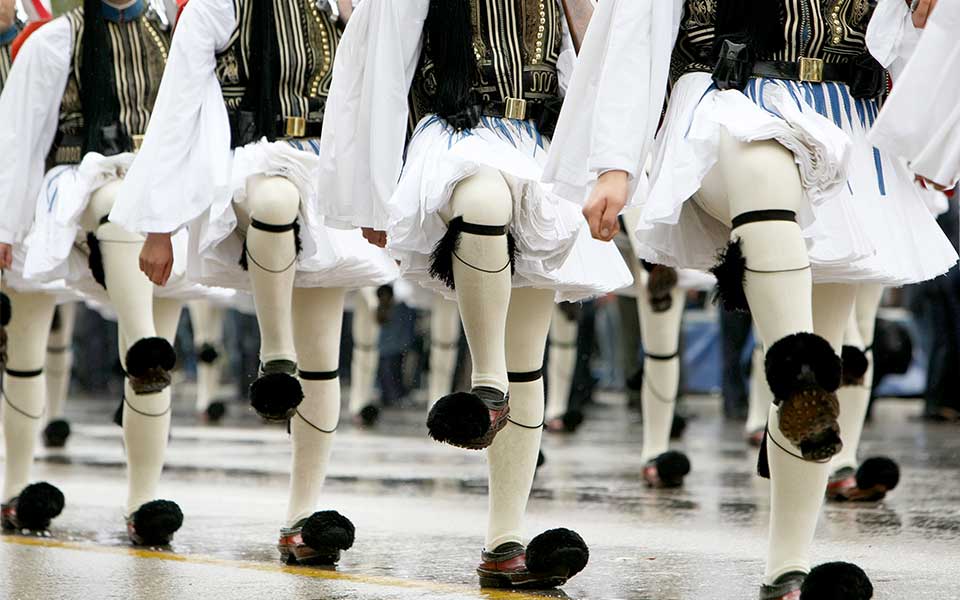Every year on October 28, public buildings and private residences are festooned with “The Blue and White” (Galanólefki) Greek flag, and patriotic and satiric songs are belted out at full volume at parades and events across the country.
A national holiday in Greece, Ohi Day is also observed by the many Greek communities of the diaspora, including major cities in the US, Canada and Australia.
It is a day of both proud celebration and solemn commemoration, but what is it all about?
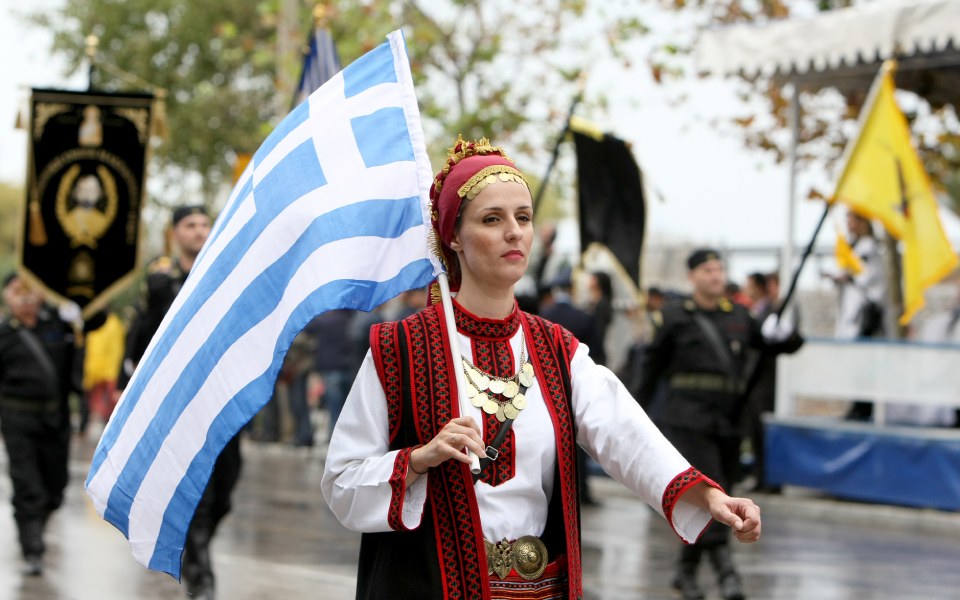
© Shutterstock
What happened on Ohi Day?
Ohi Day commemorates the day when Greek Prime Minister Ioannis Metaxas defiantly refused an ultimatum handed to him in the early hours of the morning on October 28, 1940, by the Italian Ambassador in Athens, Emanuele Grazzi. The ultimatum had come from none other than Benito Mussolini himself, the Italian dictator in Rome and a staunch ally of Adolf Hitler. The Axis Powers of Fascist Italy and Nazi Germany were already at war with the Allies, including Great Britain and its Commonwealth, France and Poland.
The ultimatum required free and unimpeded passage for the Italian army across the Greek-Albanian border to occupy strategic areas of Greece in the war against the Allies, already in its second year (from September 1939). Refusal would be seen as an act of complicity with the enemy.
At his home in Kifissia, northern Athens, Prime Minister Metaxas read the letter, calmly turned to the Italian Ambassador and issued the historic reply in French, the diplomatic language of the time: “Alors, c’est la guerre” (“Well, this means war”).
After the war in 1945, Emanuele Grazzi described the legendary scene in his memoirs:
“I gave him the letter and watched the emotion in his hands and in his eyes. With a firm voice and looking me directly in the eye, Metaxas said ‘This means war!’ I replied that it could be avoided but he again said ‘NO’. I added that if [the Greek] General Papagos … Metaxas immediately interrupted me and said ‘NO!’ I then gave a deep bow, leaving with even deeper respect for this elder who preferred to be sacrificed than enslaved.”
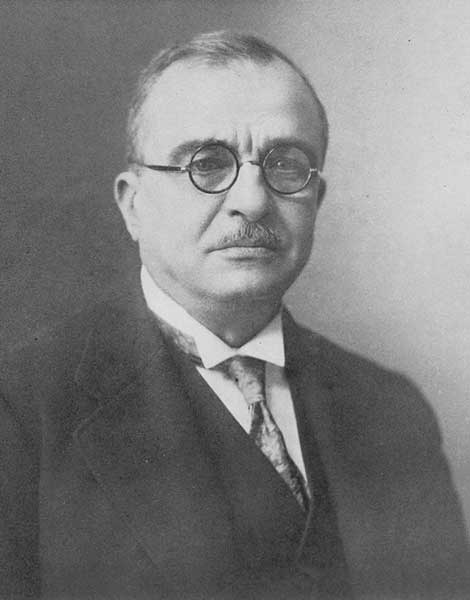
© The Archaeological Society at Athens
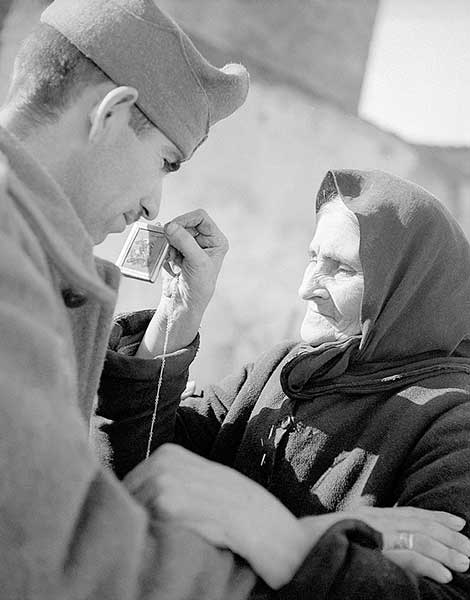
“Heroes fight like Greeks!”
Metaxas’ legendary response to the ultimatum was widely praised by Greeks across the political spectrum, and by the Allies. Up to that point, Metaxas had been a hugely unpopular figure, having established a dictatorship in 1936.
On the very same day, Italian troops launched their military offensive in Epirus, marking the start of the Greco-Italian War and, laterly, Greece’s entry into World War II.
Entry into the war was greeted with widespread enthusiasm by the Greek population, and the patriotic fervor quickly spread throughout the country. Newspapers rushed to print their articles about Metaxas’ defiant rebuttal of the Italian ultimatum to stir public sentiment.
In his editorial for the Greek newspaper Kathimerini, journalist Georgios Vlachos wrote: “Today there is no Greek who does not add his voice to the thunderous OHI. OHI, we will not hand over Greece to Italy. OHI, Italian ruffiani will not set foot on our land. OHI, the barbarian will not desecrate our Parthenon!”
From then on, October 28 would be known as Ohi Day (“No Day”).
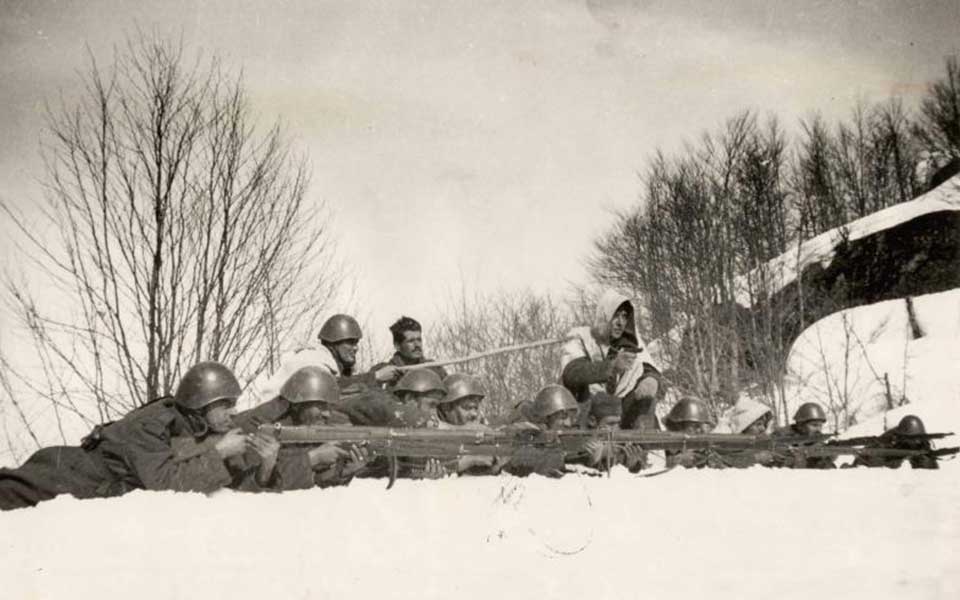
© Athens, War Museum
Men flocked to the recruiting offices to join the war effort and morale was high.
With logistical and air support from Britain’s Royal Air Force, a series of stunning Greek victories along the northern borders forced the Italian army to retreat months later in the spring of 1941. It was a devastating blow for the Axis Powers and a humiliating defeat for Il Duce Mussolini.
Greek artists began to write patriotic songs, especially folk singer Sofia Vembo, whose songs, such as “Children of Greece, Oh Children,” “Duce Puts on His Uniform,” and “Sucker Mussolini” became anthems for the nation at war and inspiration for the soldiers at the front. Vembo was dubbed the “Songstress of Victory” by the Greek nation.
The Greek successes on the Albanian Front helped raise morale among the Allies, prompting British Prime Minister Winston Churchill to exclaim:
“Today we say that Greek fight like heroes, from now on we will say that heroes fight like Greeks!”
Greek euphoria, however, was short lived. In April 1941, a swift and devastating counter attack was launched, not from the defeated Italians but by the better trained, better equipped and battle-hardened German army, Operation Marita. The result was the invasion of Greece and a brutal occupation that would last three and a half years.
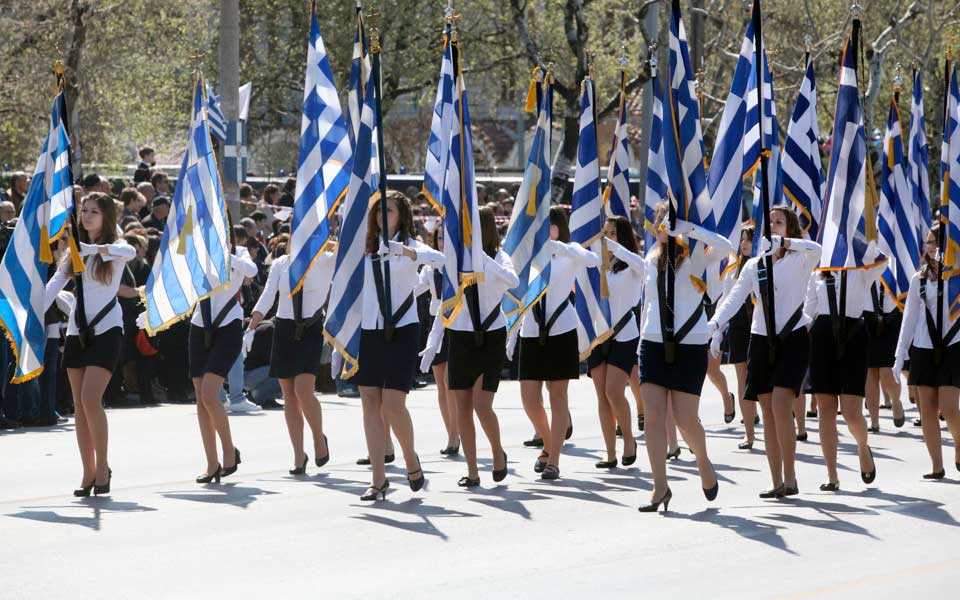
Ohi Day Celebrations and Traditions
October 28 is an important national holiday that is deeply ingrained in Greek culture. All shops and businesses are closed for the day, except for cafes and restaurants.
People and local dignitaries gather in their town or village square to lay laurel wreaths at the foot of war memorials, and schoolchildren and students take part in parades along the main street, marching to music and singing popular songs, including “Women of Epirus” and the marches “Pindos” and “Little Evzone.” Families and locals gather to cheer them on, wave flags and sing.
Much larger student and military parades are held in the city centers of Thessaloniki and Athens, where the Prime Minister lays a wreath at the Tomb of the Unknown Soldier in front of the Parliament Building in Syntagma Square. Representatives of all three branches of the Hellenic Armed Forces are on parade, as well as the Coast Guard and various emergency services, while aircraft of the Hellenic Air Force fly overhead.
The Greek National Anthem, “Hymn to Liberty” is always played at the end of the parade. All stand as a show of respect, remembering the many thousands of soldiers, sailors and airmen who died in the defense of Greece 80 years ago, and the hundreds of thousands of civilians who perished during the three and a half years of the Occupation.

